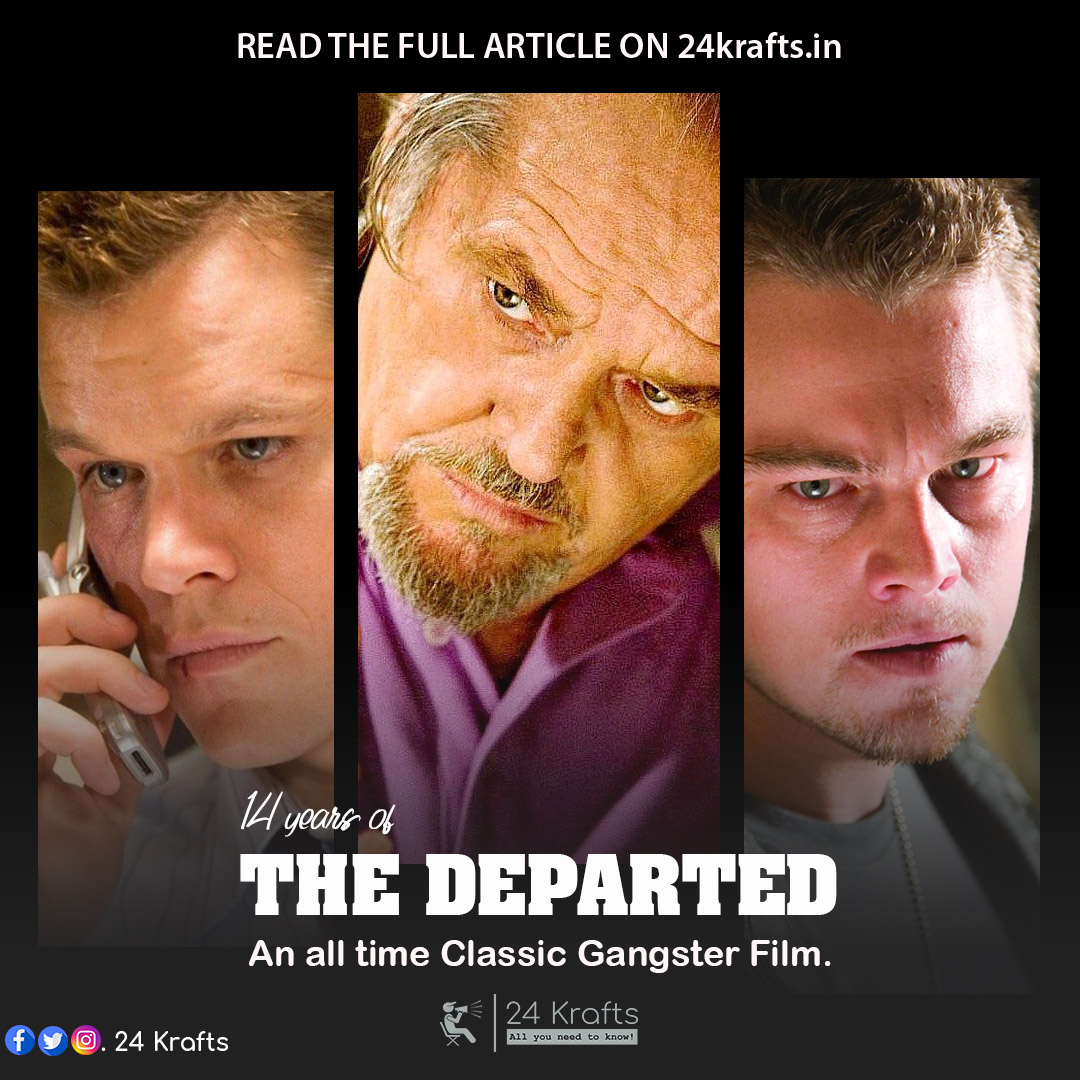“Rangeela”, is a near-constant explosion of colour and sound. This movie is marked as the dawn of a new era in Bollywood. The entirety and soul of Mumbai were showcased through the movie, as it was shot exclusively on the streets of the city, and the real-life creeps in at the edges of the frame. This movie in 1995 was way ahead of its time and pretty mature for its audience. What makes this movie special is the fact that it was declared as a cult classic though it was released in competition with DDLJ. But to some extent, the tremendous impact that the movie could have created otherwise was limited and undermined by DDJL.
Cinematography: The cinematography was brilliant. Mr. W. B. Rao did a tremendous job in his department. The way they tried to preserve the eeriness of Kamal’s character for a decent amount of time, along with a tweak of comedy occasionally and the way they constructed a scrupulous love triangle while making multiple contradictions in the characters of various leads was gratifying.
Screenplay and Direction: The screenplay of the movie is appreciable. But the redundancy and the leisurely crafted screenplay is finely noticeable by the audience at a few scenes. Though the movie tried to break the shackles of the period through its narration and screenplay, it failed to stand against the archaic methods of the then cinema. Varma has done a tremendous job in directing the film considering it is his first Hindi film in light of the difficulties for the southern director back then. He was quite successful in developing contrasting characters with a pinch of confusion along with seemingly suspenseful backstories. Rangeela’s commercial success and cultural impact allowed Varma to embark upon one of the most influential, unpredictable, and ultimately frustrating careers in the Hindi cinema. Varma won a Filmfare award in 1996 for Rangeela (best story).
Music: Out of many accolades that the movie won, there’s one such thing that added to the prestige of the film is A. R. Rahman’s music. Rangeela’s album being his being first original Hindi soundtrack, embarked his career officially into the Bollywood. Danceable and electrifying, it signalled a new era of music in the cinematic world. It earned Rahman his Filmfare award for Best Music Director; he won four of the next seven.
Character arcs:
Aamir Khan (Munna) is depicted as a typical ambitious Mumbaikar, who dreams of being a part of the cinema world. Aamir Khan is much commended for his method acting in dedication to his role and the ease with which he pulled off “Tapori” in a satirical and hilarious way. Munna being an orphan in the movie without adequate guidance ends up selling black-market tickets to the movies. But his loyalty towards his friends is impeccable. He’s shown as a very concerned and trustworthy friend of the heroine, who is always there for her in the hour of necessity. But as the story progresses he realizes love for the heroine with a lot of conflicting thoughts as she was set on her path to becoming a movie star. His contrasting character after realizing his feelings for her and her nurturing fame was evident. Munna tries to go all lengths to match the proliferating stardom of the heroine before he gives up on her due to a misunderstanding. Though she always wanted him, he could only see it through the bitter eyes of jealousy and rivalry he has invented himself. His character in the movie is fickle-minded with unsettling thoughts.
Urmila Matondkar’s character, Mili Joshi is the least defined character amidst the love triangle. But we are left with merely an essence of the character we have to build from the song and dance moments. A woman that is both passionate, yet very much still a girl growing into womanhood. I get the sense that there is ambiguity in her character for the love triangle to work at the cost of an actual person. Then again, she is a person who is invested in her fame and growth, hearing about her success makes her happy as do compliments about it. For her, it is as if this whole love triangle is a side-show to her fame. Thankfully the film didn’t view her as a bad person for wanting fame and achieving it and when she makes mistakes she apologizes. She hasn’t lost her humanity into fame as is the stereotypical way for these kinds of stories about the film to go, instead, we see her as a good person even with her fame. And even with the fame she still wants the boy-next-door who isn’t rich.
On the other side is Raj with Jackie Shroff putting performance of a vulnerable man who is private and good to his fans, but who has lost the hope to love until Mili came to his life. After it he starts to see himself as Hero in real life just like in his movies, he punches a leering extra, he drives her home every day from work, tells Mili of his past, and is prepared to marry her. He respects her and is willing to love again. He is passionately in love and it shows in the songs they have together. But also, he doesn’t see the real Mili, only the glamorous person she can become.



